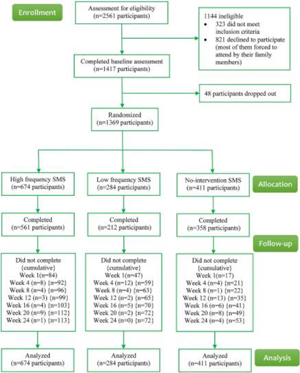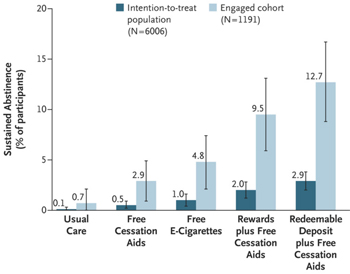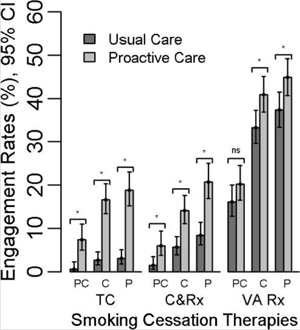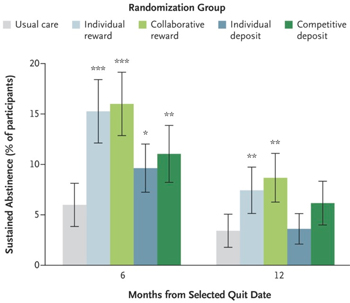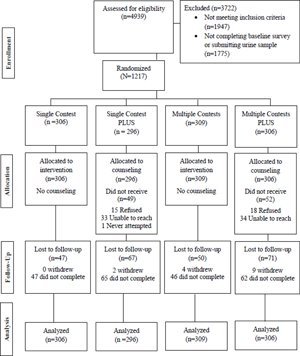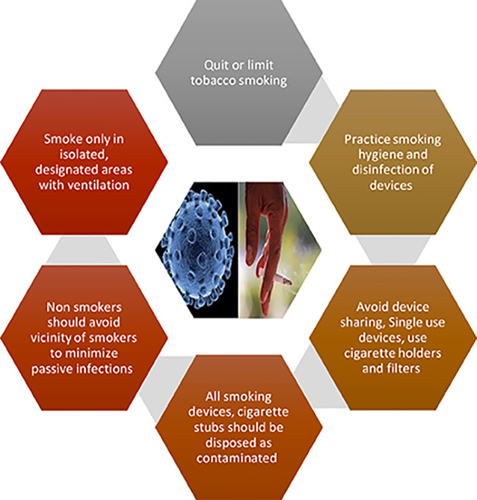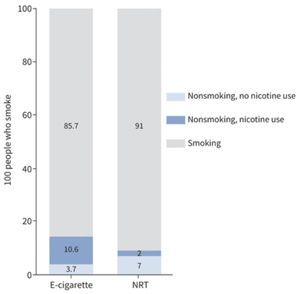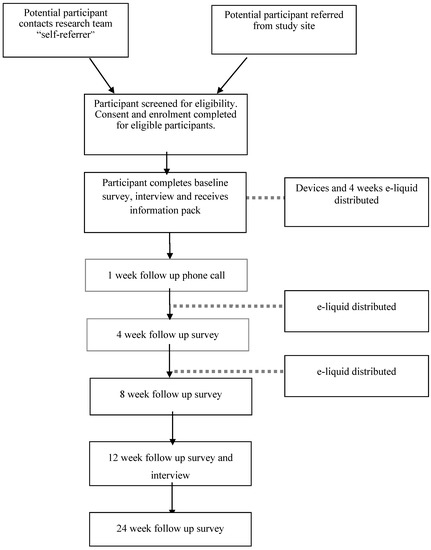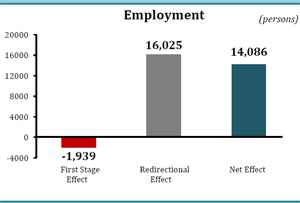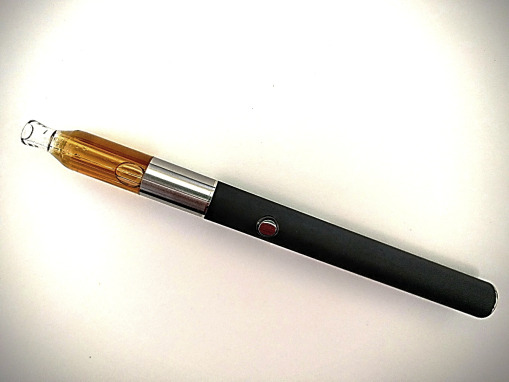Effectiveness of a text-messaging-based smoking cessation intervention ("Happy Quit") for smoking cessation in China: A randomized controlled trial
China has the highest global prevalence of cigarette smokers, accounting for more than 40% of the total cigarette consumption in the world. Considering the shortage of smoking cessation services in China, and the acceptability, feasibility, and efficacy of mobile-phone-based text messaging interventions for quitting smoking in other countries, we conducted a mobile-phone-based smoking cessation study in China.
A Pragmatic Trial of E-Cigarettes, Incentives, and Drugs for Smoking Cessation
Whether financial incentives, pharmacologic therapies, and electronic cigarettes (e-cigarettes) promote smoking cessation among unselected smokers is unknown. We randomly assigned smokers employed by 54 companies to one of four smoking-cessation interventions or to usual care. Usual care consisted of access to information regarding the benefits of smoking cessation and to a motivational text-messaging service.
Randomized Trial to Compare Smoking Cessation Rates of Snus, With and Without Smokeless Tobacco Health-Related Information, and a Nicotine Lozenge
Nicotine replacement medications are moderately effective in increasing quit rates. However, some smokers reject such aids, suggesting the value of considering alternative options. Snus, a smokeless tobacco product with low nitrosamine content, could offer an alternative. This study compared smoking cessation rates for snus, with and without information about reduced risk relative to smoking, with a nicotine lozenge (without relative risk information).
Association of Electronic Cigarette Use with Smoking Cessation Among Smokers Who Plan to Quit After a Hospitalization: A Prospective Study
Many smokers report using electronic cigarettes (e-cigarettes) to help them quit smoking, but whether e-cigarettes aid cessation efforts is uncertain. To determine whether e-cigarette use after hospital discharge by cigarette smokers who plan to quit and are advised to use evidence-based treatment is associated with subsequent tobacco abstinence.
Effects of Large Financial Incentives for Long-Term Smoking Cessation: A Randomized Trial
It is not known whether large financial incentives enhance long-term smoking cessation rates outside clinical or workplace settings. The goal of this study was to test whether large financial incentives improved long-term smoking cessation rates in low-income smokers, in a general population setting, without face-to-face or telephone counseling.
Does Motivation Matter? Analysis of a Randomized Trial of Proactive Outreach to VA Smokers
Current guidelines advise providers to assess smokers' readiness to quit, then offer cessation therapies to smokers planning to quit and motivational interventions to smokers not planning to quit. We examined the relationship between baseline stage of change (SOC), treatment utilization, and smoking cessation to determine whether the effect of a proactive smoking cessation intervention was dependent on smokers' level of motivation to quit.
Randomized Trial of Four Financial-Incentive Programs for Smoking Cessation
Financial incentives promote many health behaviors, but effective ways to deliver health incentives remain uncertain. We randomly assigned CVS Caremark employees and their relatives and friends to one of four incentive programs or to usual care for smoking cessation. Two of the incentive programs targeted individuals, and two targeted groups of six participants.
Enhancing Quit & Win contests to improve cessation among college smokers: a randomized clinical trial
Quit & Win contests (in which smokers pledge to quit smoking for a defined period in exchange for the chance to win a prize) may be well-suited for college smokers. We tested the effectiveness of multiple versus single Quit & Win contests and that of added counseling versus no counseling in smoking cessation.
